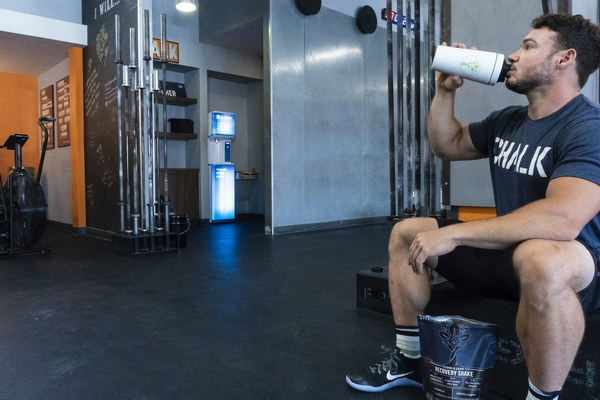Maximize Your Workout A Comprehensive Guide to Fitness Nutrition Supplements
Introduction:
Embarking on a fitness journey is not just about hitting the gym and pushing your limits; it's also about fueling your body with the right nutrients to enhance performance and aid recovery. Supplements can play a pivotal role in this equation, helping to bridge nutritional gaps and support your fitness goals. This guide will explore the key supplements to consider incorporating into your fitness diet to complement your workouts and improve your overall health.
1. Protein Powders: The Building Blocks of Muscle Recovery
Protein is essential for muscle growth and repair, making protein powders a staple in many fitness diets. Here are some popular types:

- Whey Protein: Derived from milk, whey is quickly absorbed by the body, making it ideal for post-workout consumption.
- Casein Protein: Absorbed slowly, casein is beneficial for providing a steady supply of amino acids throughout the day, promoting muscle growth and recovery.
- Plant-Based Proteins: For those following vegetarian or vegan diets, plant-based proteins like pea, brown rice, and soy are excellent alternatives.
2. BCAAs (Branched-Chain Amino Acids): The Essential Aminos for Exercise Performance
BCAAs are a group of three essential amino acids—leucine, isoleucine, and valine—that play a crucial role in muscle metabolism during exercise. They can help reduce muscle soreness and aid in muscle recovery. Consuming BCAAs before, during, or after workouts can enhance endurance and reduce muscle fatigue.
3. Creatine Monohydrate: The King of Muscle Building
Creatine is a naturally occurring compound found in muscles that helps to regenerate ATP, the primary energy source for muscle contractions. supplementing with creatine monohydrate can lead to increased muscle mass, strength, and power output. It's particularly beneficial for weightlifting and high-intensity interval training (HIIT).
4. Omega-3 Fatty Acids: The Healthy Fats for Heart and Joint Health
Omega-3 fatty acids are essential for heart health, joint function, and inflammation reduction. Fish oil supplements are a great way to incorporate omega-3s into your diet. These healthy fats can also support cognitive function and help with mood regulation.
5. Vitamin D and Calcium: The Dynamic Duo for Bone Health
Vitamin D and calcium are essential for maintaining strong bones and reducing the risk of osteoporosis. Vitamin D also plays a role in muscle function and immune health. Including a vitamin D and calcium supplement in your fitness diet can help ensure you're meeting your daily requirements.
6. Prebiotics and Probiotics: The Gut-Brain Connection
A healthy gut is essential for overall well-being, including athletic performance. Prebiotics and probiotics can help maintain a balanced gut microbiome, which is crucial for nutrient absorption, immune function, and even mood regulation. Consider incorporating a probiotic supplement into your fitness diet.
7. Multivitamins: The Safety Net for Nutritional Balance
Even with a well-balanced diet, it can be challenging to get all the necessary vitamins and minerals. Multivitamins can fill in the gaps, ensuring you're getting an adequate intake of essential nutrients.
Conclusion:
Incorporating the right supplements into your fitness diet can significantly enhance your workout performance and recovery. However, it's essential to consult with a healthcare professional before starting any new supplement regimen. Remember, supplements should complement a balanced diet and regular exercise, not replace them. By understanding which supplements align with your fitness goals, you can optimize your performance and achieve your health objectives.









